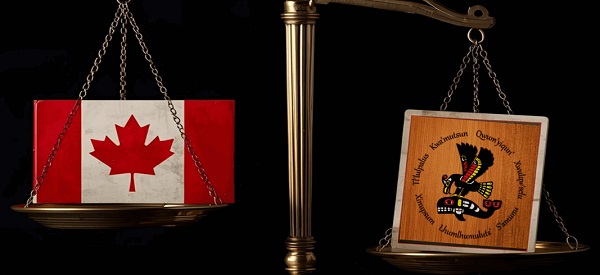Fraser Institute
Honest discussion about taxes must include bill Canadian families pay

From the Fraser Institute
By Jake Fuss
Every year at the Fraser Institute, we calculate the total tax bill—which includes income taxes, property taxes, sales taxes, fuel taxes, etc.—for the average Canadian family. This year we found the average family paid 43.0 per cent of its annual income in taxes in 2023—more than it spent on basic necessities such as food, clothing and housing combined, and significantly higher than the 33.5 per cent it paid in 1961.
Put differently, the average family’s tax bill has increased 2,705 per cent since 1961—or 180.3 per cent after adjusting for inflation.
And yet, in a recent column, Star contributing columnist Linda McQuaig said we’re “distorting the public debate over taxes” by publishing these facts while stating that the effective tax rate the average family pays has only “increased by 28 per cent since 1961.” Presumably, she arrived at her 28 per cent figure by calculating the change in the share of income going to taxes from 33.5 per cent (in 1961) to 43.0 per cent (in 2023). And yes, that’s one way to measure tax increases. But again, the inflation-adjusted dollar value—what the average family actually pays—of the tax bill has increased by 180.3 per cent. That’s not distortion, that’s explaining the increase in terms everyone can understand.
Of course, these aren’t simply academic points. Taxes, particularly at a time when families are struggling with the cost of living, have real-world effects. According to a recent poll, 74 per cent of respondents feel the average family is overtaxed, and 80 per cent believe the average family should pay 40 per cent or less of its income in total taxes.
Another important question is whether families get value for the taxes they pay. Polling shows nearly half (44 per cent) of Canadians feel they receive “poor” or “very poor” value from government services while only 16 per cent believe they receive “good” or “great” value. This should be no surprise. Health-care wait times are at record highs. Student test scores are declining. And Canada routinely fails to meet our NATO defence spending commitments.
Meanwhile, governments waste taxpayer dollars on pet projects such as a federal infrastructure bank, which, despite a budget of at least $13.2 billion, has delivered only two relatively minor projects in seven years. Or handouts to new electric vehicle (EV) owners that cost taxpayers—including Canadians unable to afford EVs—more than $587 million annually.
Can we really say governments are using our money wisely?
Unfortunately, many governments are doubling down. Municipalities such as Vancouver and Toronto raised property taxes by at least 7.5 per cent this year. Toronto city council has even floated the idea of a municipal sales tax. It’s hard to argue that you want to make life more affordable for families by leaving less money in their pockets.
And of course, the Trudeau government recently raised taxes on capital gains. But despite claims to the contrary, this tax hike won’t only affect wealthy investors. According to an analysis by economist Jack Mintz, 50 per cent of taxpayers who claim more than $250,000 of capital gains in a year earned less than $117,592 in normal annual income from 2011 to 2021. These include Canadians with modest annual incomes who own businesses, second homes or stocks, and who may choose to sell those assets once or infrequently in their lifetimes (when they retire, for example).
Finally, more tax hikes are likely on the horizon. The federal government and eight provinces are currently running budget deficits, meaning they’re not taxing enough to keep up with spending. Deficits produce debt, which will be passed onto future generations of Canadians in the form of higher taxes.
If governments across Canada want to leave more money in the pockets of Canadians, they should reduce taxes. And everyone should want an honest discussion about taxes in Canada, based on facts, not distortions.
Author:
Business
Federal Budget 2025: A responsible media would ensure Canadians know about the dismal state of federal finance

From the Fraser Institute
By Jake Fuss and Grady Munro
From 2014 to 2024, gross government debt (including federal, provincial and local governments) increased from 85.5 per cent of the economy (measured by GDP) to 110.8 per cent—a larger increase than any other G7 country. When debt grows faster than the economy, government finances are unsustainable.
Ahead of the Carney government’s long-awaited first budget scheduled for Nov. 4, a recent CBC commentary described the long-standing debate about the federal deficit and the state of federal finances as “something of a phoney war.” And that calls to balance the budget—expressed today and over the last decade—have lacked any serious discussion about the trade-offs between allowing deficits to persist versus balancing the budget.
While there’s certainly something to be said about the political theatre that regularly dominates the House of Commons—which we agree focuses too often on scoring political points instead of adequately assessing the merits of policy—it’s wrong to downplay concerns about the state of federal finances. Such concerns aren’t “phoney.”
Consider this. From 2014 to 2024, gross government debt (including federal, provincial and local governments) increased from 85.5 per cent of the economy (measured by GDP) to 110.8 per cent—a larger increase than any other G7 country. And federal gross debt increased from 53.0 per cent of the economy in 2014/15 to a projected 70.0 per cent in 2024/25. When debt grows faster than the economy, government finances are unsustainable. And the Carney government seemingly plans to continue this same approach.
In other words, the government plans to continue to spend more than it collects in revenue, continue to run massive deficits, and continue to rack up large amounts of debt.
Why should Canadians care?
Because the costs of government debt land squarely on their backs. For example, when government debt levels rise, the cost of debt interest often also rises. This year the federal government will spend a projected $54.5 billion on debt interest costs—equivalent to what it sends to the provinces for health care. Moreover, when governments borrow money, they can help drive up the cost of borrowing by increasing demand for the limited pool of savings that both government and the private sector compete for—making it more expensive for a family to take out a mortgage or businesses to attract investments. And to pay for today’s debt accumulation, governments in the future may raise taxes—a burden that will fall disproportionately on younger generations.
Again, given this alarming deterioration in the state of government finances over the last decade and the costs it imposes on Canadians, there’s nothing disingenuous about calling for more fiscal discipline from Ottawa.
Of course, getting federal finances back in order is no small task—the Trudeau government’s forays into areas of provincial jurisdiction (which carry huge price tags), combined with Carney’s massive new spending commitments for defence and other programs, mean the government cannot balance the budget without significant trade-offs. In the past, the federal government has overcome similar fiscal circumstances by committing to balance the budget and outlining a clear plan to achieve this goal. The Carney government should heed these lessons and apply them in its upcoming budget.
Alberta
Alberta taxpayers should know how much their municipal governments spend

From the Fraser Institute
By Tegan Hill and Austin Thompson
Next week, voters across Alberta will go to the polls to elect their local governments. Of course, while the issues vary depending on the city, town or district, all municipal governments spend taxpayer money.
And according to a recent study, Grande Prairie County and Red Deer County were among Alberta’s highest-spending municipalities (on a per-person basis) in 2023 (the latest year of comparable data). Kara Westerlund, president of the Rural Municipalities of Alberta, said that’s no surprise—arguing that it’s expensive to serve a small number of residents spread over large areas.
That challenge is real. In rural areas, fewer people share the cost of roads, parks and emergency services. But high spending isn’t inevitable. Some rural municipalities managed to spend far less, demonstrating that local choices about what services to provide, and how to deliver them, matter.
Consider the contrast in spending levels among rural counties. In 2023, Grande Prairie County and Red Deer County spent $5,413 and $4,619 per person, respectively. Foothills County, by comparison, spent just $2,570 per person. All three counties have relatively low population densities (fewer than seven residents per square kilometre) yet their per-person spending varies widely. (In case you’re wondering, Calgary spent $3,144 and Edmonton spent $3,241.)
Some of that variation reflects differences in the cost of similar services. For example, all three counties provide fire protection but in 2023 this service cost $56.95 per person in Grande Prairie County, $38.51 in Red Deer County and $10.32 in Foothills County. Other spending differences reflect not just how much is spent, but whether a service is offered at all. For instance, in 2023 Grande Prairie County recorded $46,283 in daycare spending, while Red Deer County and Foothills County had none.
Put simply, population density alone simply doesn’t explain why some municipalities spend more than others. Much depends on the choices municipal governments make and how efficiently they deliver services.
Westerlund also dismissed comparisons showing that some counties spend more per person than nearby towns and cities, calling them “apples to oranges.” It’s true that rural municipalities and cities differ—but that doesn’t make comparisons meaningless. After all, whether apples are a good deal depends on the price of other fruit, and a savvy shopper might switch to oranges if they offer better value. In the same way, comparing municipal spending—across all types of communities—helps Albertans judge whether they get good value for their tax dollars.
Every municipality offers a different mix of services and those choices come with different price tags. Consider three nearby municipalities: in 2023, Rockyview County spent $3,419 per person, Calgary spent $3,144 and Airdrie spent $2,187. These differences reflect real trade-offs in the scope, quality and cost of local services. Albertans should decide for themselves which mix of local services best suits their needs—but they can’t do that without clear data on what those services actually cost.
A big municipal tax bill isn’t an inevitable consequence of rural living. How much gets spent in each Alberta municipality depends greatly on the choices made by the mayors, reeves and councillors Albertans will elect next week. And for Albertans to determine whether or not they get good value for their local tax dollars, they must know how much their municipality is spending.
-

 Automotive2 days ago
Automotive2 days ago$15 Billion, Zero Assurances: Stellantis Abandons Brampton as Trudeau-Era Green Deal Collapses
-

 Business1 day ago
Business1 day agoJudges are Remaking Constitutional Law, Not Applying it – and Canadians’ Property Rights are Part of the Collateral Damage
-

 Red Deer1 day ago
Red Deer1 day agoYour last minute election prep: Common Sense Red Deer talks to the candidates
-

 Business2 days ago
Business2 days agoFord’s Whisky War
-

 Business1 day ago
Business1 day agoTrump Blocks UN’s Back Door Carbon Tax
-

 Daily Caller1 day ago
Daily Caller1 day agoTrump urges Putin, Zelenskyy to make a ‘deal’
-

 Media16 hours ago
Media16 hours agoCanada’s top Parliamentary reporters easily manipulated by the PMO’s “anonymous sources”
-

 Business1 day ago
Business1 day agoTrump Admin Blows Up UN ‘Global Green New Scam’ Tax Push, Forcing Pullback







